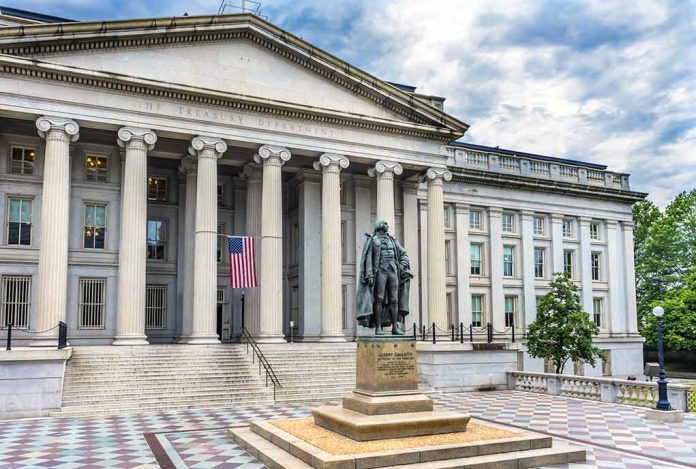
(StraightNews.org) – The US Treasury has announced it is placing Japan on a list of trading partners it monitors for unfair practices. The move comes exactly one year after Japan was removed from the same list. The US ally is suspected of manipulating currency exchange rates to gain an advantage in the global marketplace and is joined on the Treasury’s list by China, Germany, Malaysia, Singapore, Taiwan, and Vietnam.
The criteria for placing countries on the watchlist are a trade surplus with the US of at least $15 billion, a current account surplus of at least 3% of GDP, or if it engages in persistent and one-sided intervention in the foreign exchange markets. The latest Treasury report states that Japan had intervened in the market in April and May as the Yen depreciated rapidly against the US dollar.
The report noted that Japan’s Finance Ministry bought 9.8 trillion yen (roughly $61 billion) over two months to prop up the currency.
The Treasury stated that “intervention should be reserved only for very exceptional circumstances with appropriate prior consultations.” It added, however, that Japan regularly publishes its interventions and is generally a transparent partner.
By contrast, the report notes that China frequently fails to adhere to transparency obligations and refuses to disclose intervention information, making it “an outlier among major economies.”
Japanese Vice Minister of Finance for International Affairs, Kanda Masato, responded to the Treasury’s announcement saying he did not “see any problem” with the relisting and highlighted the “positive view” expressed about his country’s openness and transparency.
Last year, in its semi-annual update, the US Treasury said it did not add any trading partners to its monitoring list because no nation met the criteria. This year, China appears mainly because of its lack of transparency and surplus, while Vietnam made the list due to its $103 billion surplus and Singapore for “persistent foreign exchange intervention.” Germany met the criteria for trade surpluses and an oversized current account surplus.
Copyright 2024, StraightNews.org













